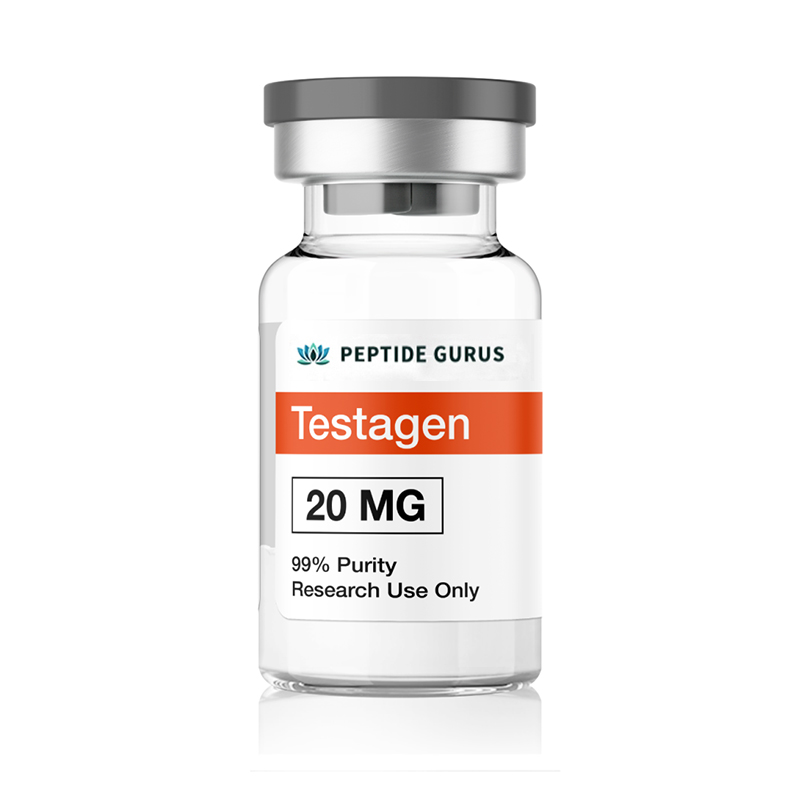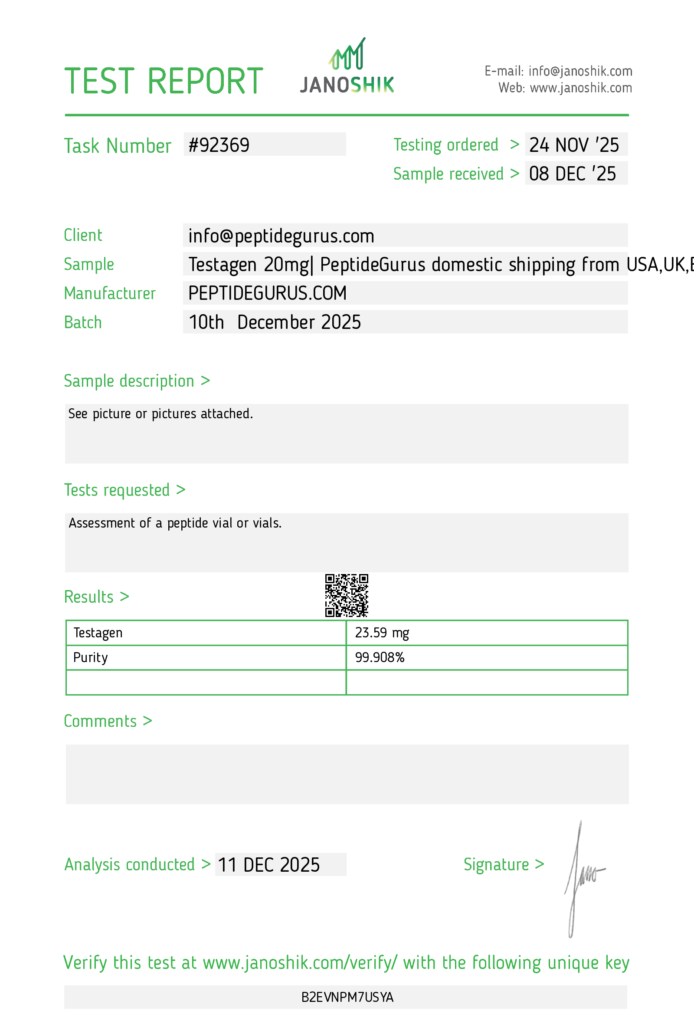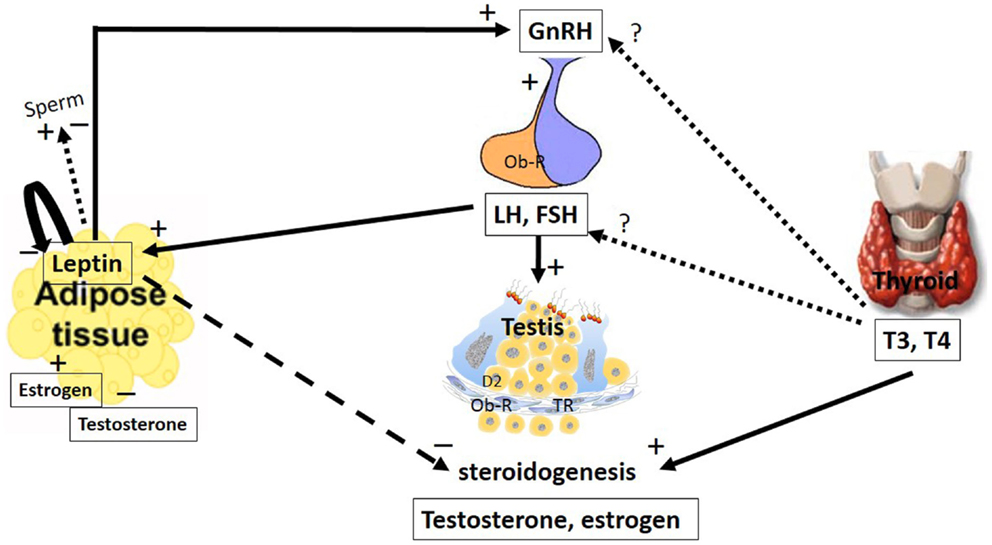




Categories: Peptide Bioregulators, Peptide Finished product, Peptides and Their Dosages
Free (1) 30 ml Bacteriostatic Water
with qualified orders over $500 USD.
(excludes capsule products, cosmetic peptides, promo codes and shipping)
Testagen is a short, bioregulatory peptide that has primary effects on the pituitary gland and ultimately the thyroid gland. As a result of its action on these two glands, Testagen is capable of normalizing testosterone production as well as thyroid hormone production in certain settings. By normalizing thyroid hormone production, Testagen has a moderate impact on the immune system. In these cases, Testagen can be conveniently thought of as resetting the pituitary gland to a more youthful state and thereby acting as an anti-aging peptide. Testagen is being researched for its ability to boost testosterone levels, improve thyroid hormone function, and stimulate the differentiation of stem cells in the immune system to improve immune function.
Product Usage: This PRODUCT IS INTENDED AS A RESEARCH CHEMICAL ONLY. This designation allows the use of research chemicals strictly for in vitro testing and laboratory experimentation only. All product information available on this website is for educational purposes only. Bodily introduction of any kind into humans or animals is strictly forbidden by law. This product should only be handled by licensed, qualified professionals. This product is not a drug, food, or cosmetic and may not be misbranded, misused or mislabled as a drug, food or cosmetic.
Testagen is a peptide studied for its involvement in endocrine and reproductive system research. It is commonly applied in laboratory studies related to hormonal signaling, cellular regulation, and age-associated endocrine function.
Our Testagen 20mg is produced using controlled synthesis processes to ensure high molecular accuracy and reproducibility. Supplied as a lyophilized powder, it maintains excellent stability and is suitable for both short-term experiments and long-term research projects.
Testagen is widely chosen by research organizations focusing on hormonal balance, aging science, and endocrine peptide research.
Testagen, as the name implies, is a testosterone boosting bioregulatory peptide. Like many short peptides, Testagen crosses both the cell and nuclear membranes to interact directly with DNA. Research shows that Testagen is able to stimulate the anterior pituitary gland to increase the release of thyroid stimulating hormone and, ultimately, T3 and T4 thyroid hormones. It does this even in the setting of no hypophyseal support, suggesting that it directly alters the expression patters of proteins in the pituitary gland, a function that may explain its effects on testosterone levels. Finally, because Testagen 20mg affects the pituitary gland, it has impacts on hemostasis and immunity, though these are less pronounced than its effects on thyroid stimulating hormone levels and testosterone.
The thyroid gland, a part of the endocrine system, is important to metabolism, growth, and reproductive function. Dysfunction of the thyroid gland can lead to difficulties with memory and concentration, changes in heart rate, difficulty regulating body temperature, weight gain, high cholesterol levels, and trouble with reproductive function.
One of the many reasons that the thyroid gland malfunctions is due to failure of the pituitary gland, the gland that regulates it. In this case, levels of another hormone, TSH, decline and do not stimulate the thyroid gland. There are a number of reasons why this may happen, but research in birds suggests that the pituitary gland can be stimulated, directly, but administration of Testagen 20mg. Testagen appears to alter DNA expression profiles in the pituitary gland to raise TSH secretion. Studies show that this results in near-normal thyroid hormone levels[1], [2].
Research suggests that Testagen 20mg may help to normalize testosterone levels and thus testicular function. This may be especially pertinent to aging men suffering from declines in testosterone levels and related problems like lower bone density, decrease muscle mass, erectile dysfunction, inhibited libido, problems with cognition, and decreased energy levels.
It is important to note that the benefits of Testagen 20mg on the pituitary gland may occur even if the dysfunction is caused by tumors, medications (e.g. steroids, morphine) infection, and or autoimmune conditions. Right now, research is in its early stages so it is difficult to delineate the specific settings in which Tesagen does and does not impact the pituitary gland.
Some or all of the benefit that Testagen has on testosterone levels may be directly linked to its effects on thyroid hormone levels. Research shows that hypothyroidism can lead to low testosterone levels that are subsequently normalized with thyroid hormone replacement therapy. Thyroid hormone replacement has also been shown to normalize free testosterone concentrations[3]. It stands to reason then that Testagen’s benefits on testosterone levels may, in fact, be attributable to its effects on thyroid hormone levels. More research needs to be completed in this area.

Research by Dr. Vladimir Khavinson has shown that peptides are capable of penetrating both cell and nuclear membranes to interact directly with DNA[4]. This epigenetic regulation of gene expression extends to the genes responsible for cell differentiation. Testagen 20mg has been shown by Dr. Khavinson to help push stem cells to differentiate into cells of the immune system, indicating that the peptide could have potential positive benefits on immune function[5]. This function may be especially useful in elderly individuals experiencing senescence and loss of cell differentiation secondary to chromatin condensation.
By virtue of its effects on the immune system, Testagen may be said to have anti-aging properties. By improving immune function and immune surveillance, Testagen could help to reduce the risk of a number of autoimmune disease as well as cancers that tend to increase in prevalence with age. It is important to note that immune function is often tied to thyroid function and that low thyroid hormone levels are often associated with increased risk of infection and poor immunity. The impact of Testagen 20mg on thyroid hormone levels may be a secondary contributor to its beneficial effects on immune function.
Dr. Boris Kuznik, who is now retired, did some of the preliminary work with Dr. Khavinson on the role of Testagen and similar peptides in the blood system. His specialty of clotting, which is not a function of the immune system per se but is closely related and is, to some extent, influenced by the thyroid gland, led him to explore the ability of Testagen to improve hemostasis (blood clotting). Early research suggests that Testagen is useful in this setting and may, in fact, be able to normalize hemostasis in certain disease conditions.
Testagen is a short, bioregulatory peptide that has primary effects on the pituitary gland and ultimately the thyroid gland. As a result of its action on these two glands, Testagen is capable of normalizing testosterone production as well as thyroid hormone production in certain settings. By normalizing thyroid hormone production, Testagen has a moderate impact on the immune system. In these cases, Testagen can be conveniently thought of as resetting the pituitary gland to a more youthful state and thereby acting as an anti-aging peptide. Testagen is being researched for its ability to boost testosterone levels, improve thyroid hormone function, and stimulate the differentiation of stem cells in the immune system to improve immune function.
Testagen exhibits minimal side effects, good oral and excellent subcutaneous bioavailability in mice. Per kg dosage in mice does not scale to humans. Testagen for sale at
The above literature was researched, edited and organized by Dr. E. Logan, M.D. Dr. E. Logan holds a doctorate degree from Case Western Reserve University School of Medicine and a B.S. in molecular biology.

Prof. Vladimir Khavinson is being referenced as one of the leading scientists involved in the research and development of Testagen. In no way is this doctor/scientist endorsing or advocating the purchase, sale, or use of this product for any reason. There is no affiliation or relationship, implied or otherwise, between
ALL ARTICLES AND PRODUCT INFORMATION PROVIDED ON THIS WEBSITE ARE FOR INFORMATIONAL AND EDUCATIONAL PURPOSES ONLY.
The products offered on this website are furnished for in-vitro studies only. In-vitro studies (Latin: in glass) are performed outside of the body. These products are not medicines or drugs and have not been approved by the FDA to prevent, treat or cure any medical condition, ailment or disease. Bodily introduction of any kind into humans or animals is strictly forbidden by law.
PeptideGurus is a leading supplier of American-made research peptides, offering top-quality products at competitive prices. With a focus on excellence and customer service, they ensure a secure and convenient ordering process with global shipping.
CONTACT